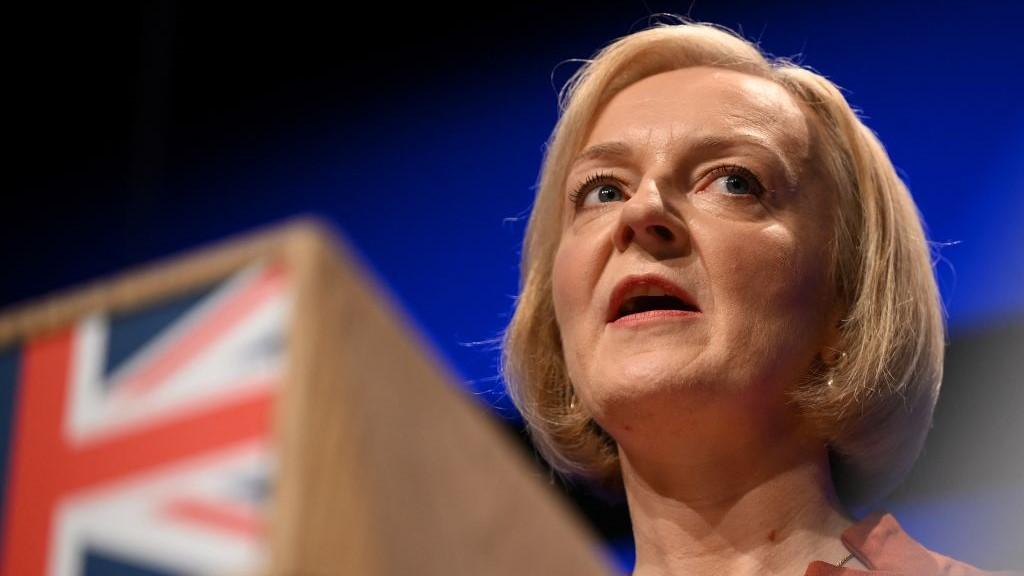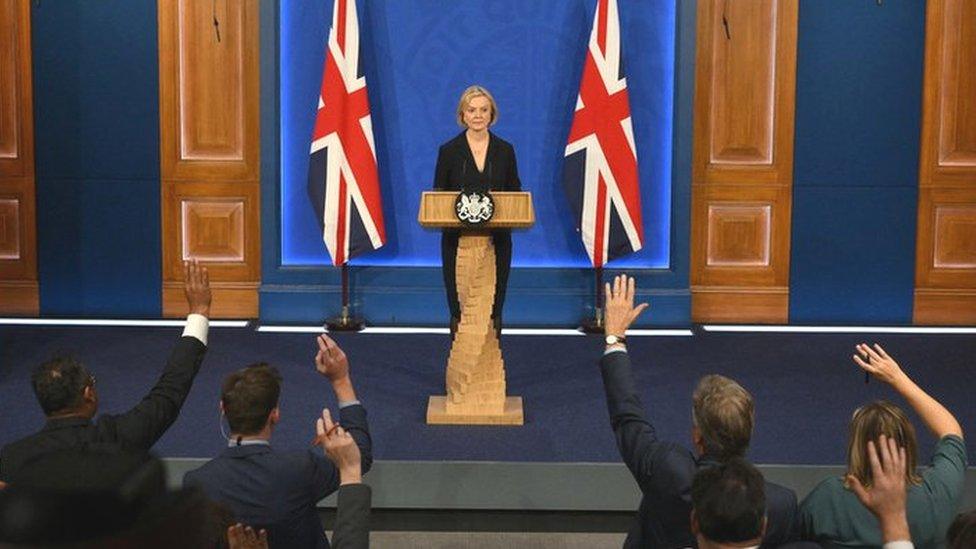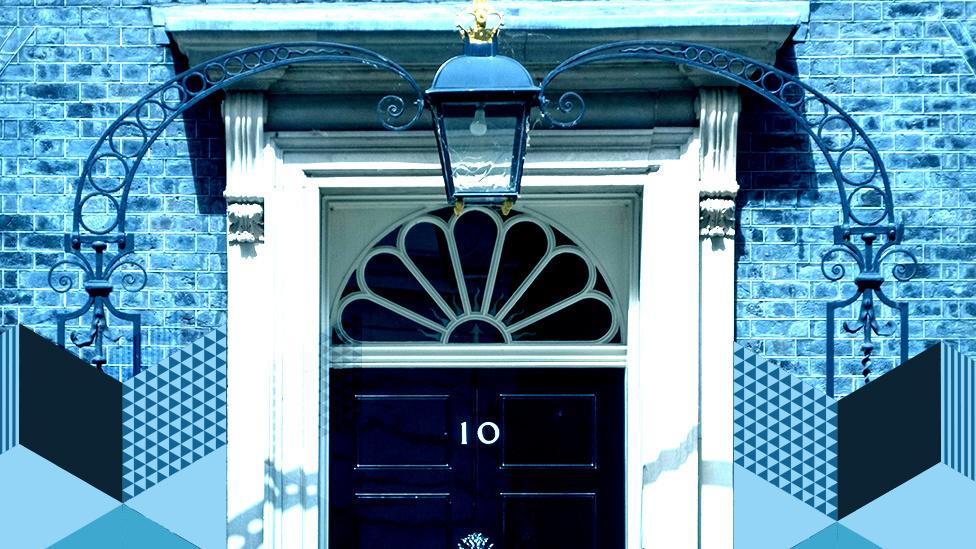Liz Truss: What the world is saying about UK turmoil
- Published

The world has been watching the political and economic upheaval in the UK over the past few weeks.
The havoc caused by Prime Minister Liz Truss's tax-cutting plan, followed by its withdrawal this week, made headlines around the globe.
Even US President Joe Biden waded in, breaking diplomatic norms in doing so.
But what impact has it really had outside the UK? BBC reporters from Berlin to Washington explain how it's being viewed where they are and what's changed.

Britain's political troubles have raised eyebrows in Germany but few are shocked, says the BBC's Jenny Hill in Berlin.
For many in Berlin, the drama in Westminster is viewed - with some sadness - as just the latest episode in the political and economic upheaval which many Germans suspected would be the inevitable consequence of Brexit.
Neither Chancellor Olaf Scholz nor his ministers have commented publicly on the mini-budget or its repercussions.
But columnists have been scathing in their assessment; the selection of Liz Truss, said one, was a "fatal choice" made by the Conservatives who ignored warnings about her policy.
Another expressed incredulity that MPs were plotting to replace the beleaguered prime minister without a general election, warning that such a "coup" risked turning Britain into a "Banana Republic".
There was a time when some German politicians would tell me of their admiration for British politics, for the cut and thrust of a system which seemed far more exciting than the compromise-driven, coalition-based German model. It's an opinion few hold now.

With Japan's own currency trading at a low, Tokyo is paying attention to the British pound, writes Mariko Oi.
Japan was once known for its own revolving door of prime ministers so the current political turmoil in the UK doesn't feel unique to many.
Some in local media have labelled her "fake Thatcher" and say she has tried to gamble with the government's finances. Others are asking how this may affect the UK's policy towards Asia - most notably its tough stance against China.
In the financial markets, traders have been closely paying attention to the pound as Japan's own currency is also trading at its 32-year low.
On social media, some people have been comparing her approval rating to Japan's Prime Minister Fumio Kishida, saying that he's still got some room to grow, while others are amused by the British sense of humour behind the "can Liz Truss outlast a lettuce" live stream.
Posting a photo of the stream, one user wrote:, external "There is not enough humour in Japanese media".

The White House usually makes an effort to stay out of British drama but this president took the plunge, writes Anthony Zurcher in Washington.
The bar that foreign news has to clear to penetrate into the American consciousness is quite high.
Special relationship notwithstanding, the British turmoil has garnered little attention in the US, although one commentator saw Truss's plummet in the polls, external as a sign of a healthy British democracy because partisanship would prevent such a change in fortunes for a US president. Others have asked, external what it means for Margaret Thatcher's ideology.
One American who was giving Liz Truss's predicament some consideration, however, was President Joe Biden who called her tax-cutting plan a "mistake".
American presidents typically avoid getting too involved in the domestic disputes of other countries. This one, however, took that plunge - even if he seemed to acknowledge he shouldn't have.
"I think that the idea of cutting taxes on the super wealthy at a time when," he said, before cutting himself off. "Anyway, I just think - I disagreed with the policy, but that's up to Great Britain to make that judgment, not me."
Of course, Mr Biden has his own political challenges to face, with the midterm elections just a few weeks away, Republicans threatening to win majorities in Congress and Americans facing many of the same economic troubles currently bedevilling the British.

The focus in India is on its own economy, writes Rajini Vaidyanathan in Delhi.
News of the turmoil in the UK has barely made the front pages here in India - a sign of how officials in Delhi no longer look to Britain in the way they once did.
Seventy-five years since India gained independence, the focus is on how the economy here is growing, rather than the financial woes of its former coloniser.
The big news of Jeremy Hunt's reversal of the tax cuts made it to page 12 and 15 in two of the country's most read papers on the day after, though only as stories in the global sections. "PM Truss humiliated" was the headline which accompanied one of the write-ups.
That's not to say there's no interest in Conservative politics or politicians. When British Home Secretary Suella Braverman said Indians were the largest group who overstayed their visas, she sparked an angry reaction, as well as speculation her comments could derail a UK-India trade agreement.
And the real fascination in the summer came when Rishi Sunak entered the final phase of the Conservative leadership contest.
Many in the country wondered whether Mr Sunak - the son-in-law of Narayana Murthy, one of India's wealthiest and best- known businessmen - would take charge at Number 10.
It didn't happen then but could it now, ask some of the latest headlines. "Is a Rishi Sunak comeback imminent?" said one.
- Published17 October 2022

- Published24 October 2022
